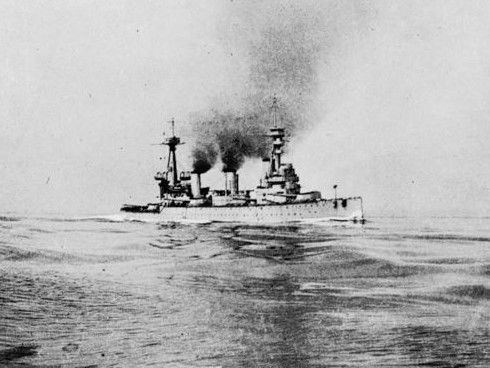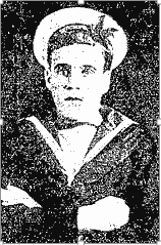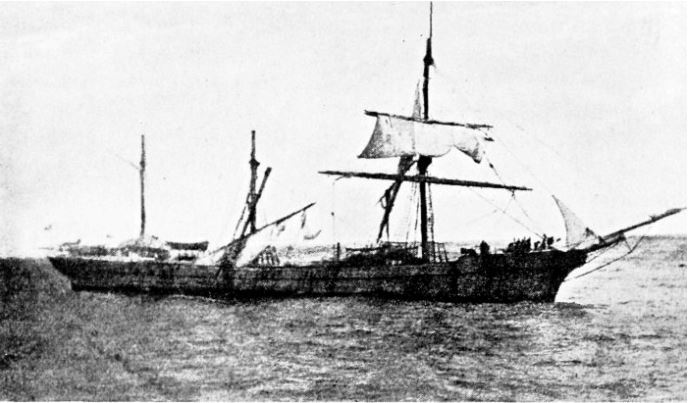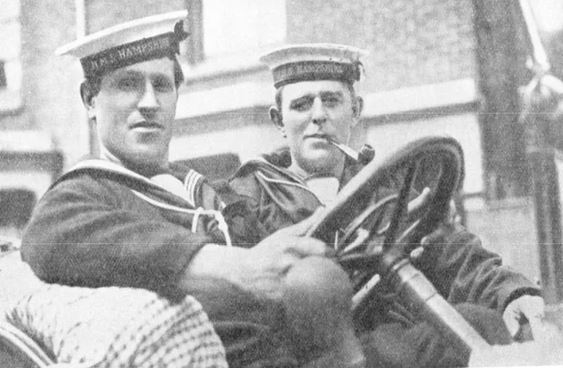Aghada's Contributions to the Royal Navy during the Great War, A Saga of Bravery and Sacrifice

The Great War, spanning from 1914 to 1918, witnessed the involvement of millions of men from diverse backgrounds, including a notable contingent of Irishmen in the Royal Navy. Despite Ireland's political tensions with Britain, many Irishmen enlisted in the Navy, driven by a sense of duty, adventure, and economic necessity. This essay explores the significant contributions of Irish sailors to the Royal Navy during the Great War, focusing on their roles in major sea battles that shaped the course of the conflict.The image is Indefatigable at Jutland, c. 3pm May 31, 1916. IWM SP 799
The Road to Service. In the years leading up to the outbreak of war, Ireland faced economic challenges, with many young men seeking employment opportunities abroad. The Royal Navy, with its promise of steady pay and a sense of purpose, appealed to numerous Irishmen. Recruitment efforts across Ireland, from Dublin to Cork to Belfast, attracted eager volunteers, drawn by a mixture of patriotism and the desire for adventure. For some, joining the Navy was a chance to escape poverty and unemployment, while for others, it was an opportunity to serve their country in a time of need.
Training and Integration. Once enlisted, Irish recruits underwent rigorous training at naval bases across Britain. Despite initial challenges, including cultural differences and prejudice, Irish sailors quickly proved their worth through hard work and dedication. Seamanship, gunnery drills, and naval tactics became second nature as they prepared for the realities of war at sea. Bonds of camaraderie formed among sailors of all backgrounds, transcending nationality and fostering a sense of unity in the face of adversity.
The Crucible of Battle. The Battle of Jutland, fought from May 31 to June 1, 1916, stands as one of the largest naval battles in history. Irish sailors played crucial roles aboard British ships, including battleships, cruisers, and destroyers. Irish gunners, engineers, and sailors manned the guns and engines, facing the enemy with steely resolve. Among the vessels engaged in the battle was HMS Indefatigable, which tragically sank after a devastating explosion. The ship's Irish crew, including brave gunners and stokers, fought valiantly until the end, sacrificing themselves in the service of their country. Among those lost were seven men from the Aghada area, highlighting the sacrifices made by local heroes. Despite heavy losses on both sides, the Battle of Jutland demonstrated the Royal Navy's resilience and determination to maintain control of the seas.
Gallipoli and Beyond. In addition to major naval engagements like Jutland, Irish sailors played vital roles in supporting amphibious operations, such as the ill-fated Gallipoli Campaign. Ships, including HMS Triumph and HMS Goliath, provided gunfire support and troop transport during the campaign. Despite facing fierce resistance from Ottoman forces and enduring grueling conditions, Irish sailors displayed courage and perseverance in the face of adversity. Leading Seaman Michael Coleman tragically lost his life aboard HMS Goliath, while Blacksmith John Cotter and Leading Stoker Jeremiah Cronin met their fate on HMS Triumph. James Frederick Hynes from Whitegate emerged as one of the fortunate survivors of the sinking of HMS Triumph.
 James Frederick Hynes, Cork Examiner 28 January 1916
James Frederick Hynes, Cork Examiner 28 January 1916
Throughout the war, Irish sailors continued to serve with distinction in various theaters of operation, from the North Sea to the Mediterranean. They participated in convoy escort duties, blockade operations, and anti-submarine patrols, facing the constant threat of enemy mines, torpedoes, and gunfire. Their contributions were integral to the Royal Navy's efforts to maintain control of vital sea lanes and support Allied operations on land.
Individual Acts of Valour. Amidst the chaos of war, countless stories emerged of Irish sailors displaying extraordinary bravery and selflessness. Robert McGowan, born in Whitegate, Cork, in 1898, was one of nine children born to James and Mary McGowan. By 1911, only four siblings Thomas, Elizabeth, William, and Robert remained. In 1913, Robert enlisted in the Royal Navy as a boy sailor. Serving aboard HMS Hilary during World War I, he confronted the challenges of naval life. On December 16, 1914, the ship set sail on its inaugural voyage, patrolling the North Atlantic. Amid routine inspections and stormy weather, tragedy struck as a crew member was swept overboard, despite search efforts. Subsequently, the crew rescued survivors from a sinking Norwegian barque, earning commendations from the Norwegian government. During the war, Robert's brothers, William and Thomas, also served, with Thomas participating in the Battle of Jutland. On July 17, 1916, Robert McGowan received a medal and certificate for his role in rescuing survivors from the Norwegian barque "Maryetta" while serving on HMS Hilary. The presentation took place on the quarter-deck of HMS London in the presence of the ship's company.

Bark Maryetta of Drammen was due to Santos with cement from Aalborg, but then the ring around the donkeys head on the mainmast snapped, after which the entire main rig, mizzen pole and fore-bracket went overboard. The British auxiliary cruiser "Hilary" arrived and began towing the casualty towards Kirkwall. On Friday evening 1 January it was discovered that the ship had sprung a huge leak and was about to sink. Everyone went into the lifeboat, but it was overturned by a rough sea. "Hilary" put out a boat and rescued 6 men, but by then 11 had drowned.
Amidst a tale steeped in courage and selflessness, the narrative unveils the survival of William Cashman juxtaposed with the tragic demise of Michael Flavin aboard the HMS Hampshire. This saga, rich with valor and sacrifice, bears witness to the profound cost of duty, as many lives are claimed in its wake. William Cashman emerges as a testament to resilience amid adversity, while the loss of Michael Flavin stands as a poignant reminder of the perils faced on the tumultuous seas. Within this chronicle, bravery and sacrifice intertwine, leaving an indelible mark upon the annals of history.

Wilfred Wesson, with pipe, and William Cashman, another survivor. From The Great War, "I Was There".
As the guns fell silent and peace returned to the seas, the legacy of the Irishmen who served in the Royal Navy endured. Memorials and monuments across Ireland and Britain honour their courage and sacrifice, ensuring that their memory lives on for future generations. Their contributions to the war effort, both individually and collectively, serve as a reminder of the vital role played by Irish sailors in securing victory at sea during the Great War. The story of Irishmen in the Royal Navy during the Great War is one of bravery, sacrifice, and resilience in the face of adversity. From the recruitment offices of Dublin to the decks of British warships, they answered the call of duty with unwavering determination and served their country with honour and distinction. Their contributions to major sea battles and individual acts of valour will forever be remembered as part of the rich tapestry of naval history.
Aghada's Contributions to the Royal Navy during the Great War, A Saga of Bravery and Sacrifice was over three hundred men. They are as follows:-
|
|
| ||||||||||||||||||||||||||||||||||||||||||||||||||||||||||||||||||||||||||||||||||||||||||||||||||||||||||||||||||||||||||||||||||||||||||||||||||||||||||||||||||||||||||||||||||||||||||||||||||||||||||||||||||||||||||||||||||||||||||||||||||||||||||||||||||||||||||||||||||||||||||||||||||||||||||||||||||||||||||||
The men enlisted under the following area's, Aghada 249, Whitegate 46, Ballinrostig 2, Guileen 4, Inch 1, Ballyvaloon 4, Finure 1, Ballyshane 1, Rathcoursey 3, Rostellan/Farsid 4, Saleen 3 and Ballycroneen 1. The above men were born in the registered district of Aghada .
Research is ongoing.